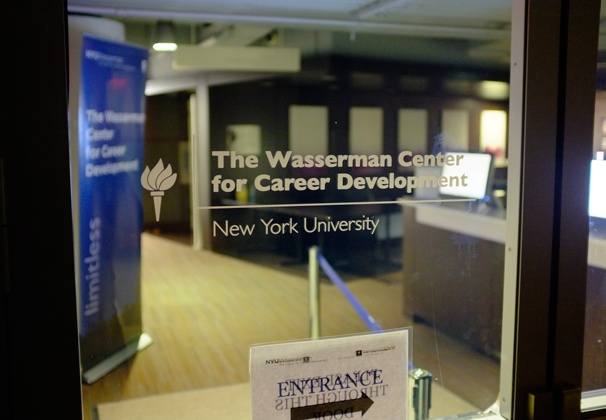The Wasserman Center for Career Development has implemented several changes since August 2013 as a result of the petition Tisch junior Christina Isnardi created last spring that brought attention to the unpaid internships on NYU’s job posting site, career net.
NYU is one of the first universities to have made changes to rectify the unpaid internship situation.
Changes to the site include a greater screening process for unpaid internships, including employers having to agree that their internship meets the Department of Labor guidelines, eight times the number of paid internship and job positions (from below 500 to over 4,000) than the 2013 spring semester and links to educate students on labor laws and illegitimate job postings.
NYU spokesman James Devitt confirmed that Wasserman policies have changed. He said NYU is also attempting to offer financial assistance to students who feel financially strained by taking an unpaid internship.
“The Wasserman Center Internship Grant was established years ago,” Devitt said. “It provides financial assistance to students pursuing non-paying internships within not-for-profits, the arts, education, public service and other industries that do not traditionally pay their interns. The Wasserman Center now annually offers more than 300 $1,000 grants.”
Isnardi said she started the petition after she started doing her boss’ work for free and started to feel even more strongly about the issue after hearing that her friends went through similar experiences.
“I also had a friend who took an internship through Wasserman where he was told by the interviewer that the position was ‘paid,’ but discovered later that it was ‘paid with academic credit’,” Isnardi said. “So instead of getting financial compensation for his work, he had to pay to work for free. I investigated this issue further and discovered that hundreds of unpaid internship posts on the career site seemed to be in clear violation of the DOL guidelines for internships.”
The Department of Labor has a test to determine whether an unpaid internship is legal. The test is made up of six criteria: training similar to an educational environment, benefit to the intern, the intern not displacing staff but working under supervision, the employer deriving no benefit, the intern not being entitled to a job and a mutual understanding that there will be no pay.
After contacting Wasserman about her concerns and being encouraged to gain support from her classmates, Isnardi and a friend presented their cause to dozens of student groups and gained over 1100 signatures.
“Sometimes when making a presentation, I would just have to say the title of the petition and students would already take out a pen to sign it,” Isnardi said.
Ian Poole, CAS senior, took an unpaid internship his sophomore year which almost turned him off of his intended career.
“I remember having to make coffee runs, working hours from home, pulling all nighters to get my homework done too … it wasn’t worth it,” Poole said. “I was doing everybody’s work — it was sort of demeaning.”
Isnardi is now trying to bridge her campaign to a larger campaign to convince other universities to follow in NYU’s footsteps.
“It gives me hope knowing that the success at NYU can set a precedent in which students at other universities can add upon, leading us all closer to seeing an end to the largely illegal and exploitative practice of unpaid internships,” Isnardi said.
A version of this article appeared in the Thursday, Feb. 13 print edition. Cassandra Cassillas is a staff writer. Email her at [email protected].























































































































































